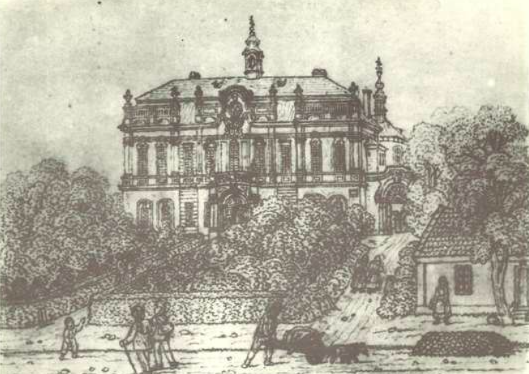V kapli Libeňského zámku jsme se ženil 
25.6. 1608 The Peace of Libeň is concluded
Categories: Years of war and revolution , Calendar

In June 1608, the Roman Emperor Rudolf II and Archduke Matthias of Habsburg made peace at Libeň Castle. At least for a time, the crisis within the Habsburg family was settled and there was no war.
In 1606, Archduke Matthias of Habsburg, brother of Rudolf II, held a meeting of the archdukes in Vienna, at which he was informally recognized as the head of the Habsburg year. He was commissioned by Rudolf II to negotiate a truce with the Turks and the rebels. He succeeded in doing so, but the terms were so unfavourable to Austria that Rudolf II refused to sign them. Tensions between the brothers grew.
In late 1607 Matthias won the military support of the Moravian, Hungarian and Austrian Estates in exchange for a promise of religious tolerance. The army led by Matthias marched to Prague and camped near Štěrboholy and Malešice. Although the open conflict was prevented by the support of the Czech Estates, Rudolf II was forced to sign the treaty now known as the Peace of Libeň on 25 June 1608 in the Libeň Castle.
In the treaty, Rudolf entrusted Matthias with the rule of Moravia, Hungary and Upper and Lower Austria, retaining only Bohemia, Lusatia and Silesia in his sphere of influence, and promised to make him the heir to the Bohemian throne. "Then, at the Hungarian Diet in Bratislava in September 1608, Matthias proclaimed complete religious freedom in Hungary and equal rights for the Catholic and Protestant nobility in obtaining provincial offices," writes Ivan Kazimour in his book The Long Road to Temporary Czechoslovakia.
On the same day, the Diet elected Matthias II as King of Hungary on 16 November 1608, thus fulfilling the resolution of the Peace of Libeň. In order to maintain the support of the Bohemian Estates, Rudolf II issued his Majesty for Religious Freedom, also known as Rudolf's Majesty, on 9 July 1609, which also introduced religious freedom in the Bohemian lands.
This confirmed the Bohemian Confession, which had already been promised in 1575 by his father Maximilian II. "We, Rudolf the Second, do by this letter, that both the estates of the nobility, the knights, and the citizens of Prague, the miners and other towns withsubjects may exercise their religion under both free and unhindered," was the introduction to the letter.
The Emperor, however, did not accept his humiliation. When his nephew, the Archduke of Tyrol and Bishop Leopold of Passau, gathered a mercenary army for the war for the Duchy of Julius on the Rhine, he secretly invited it to Bohemia. "At the end of January 1611, the Pasovians crossed the Bohemian border and in the early morning of 15 February attacked Prague, penetrated the Lesser Town and occupied Prague Castle. However, their attack on the Old Town, led in front of the Stone (now Charles) Bridge, was resisted by the city'sJan Bauer writes in his book Revolutionary Events in Czech History.
The commander of the Estates' cavalry, Matthias Thurn, was also wounded in the battle and took refuge in Pernštejn Palace under the protection of the Supreme Chancellor Zdeněk Vojtěch Popel of Lobkowitz. Meanwhile, at the Old Town Hall, the Czech Estates elected a thirty-member Directory and appealed to King Matthias of Hungary for protection. Faced with the threat of a rapidly approaching army, the Pasovians left the Castle and the Lesser Town in March, and Emperor Rudolf II made himself available to receive the delegation of the Bohemian Estates.
"Eventually the Czech Estates arrested a number of people from the Emperor's entourage. In April 1611, the General Assembly of the lands of the Bohemian Crown decided that Rudolf had to abdicate the Bohemian throne in favour of his brother Matthias," Bauer adds.
Sources.
The article is included in categories:









